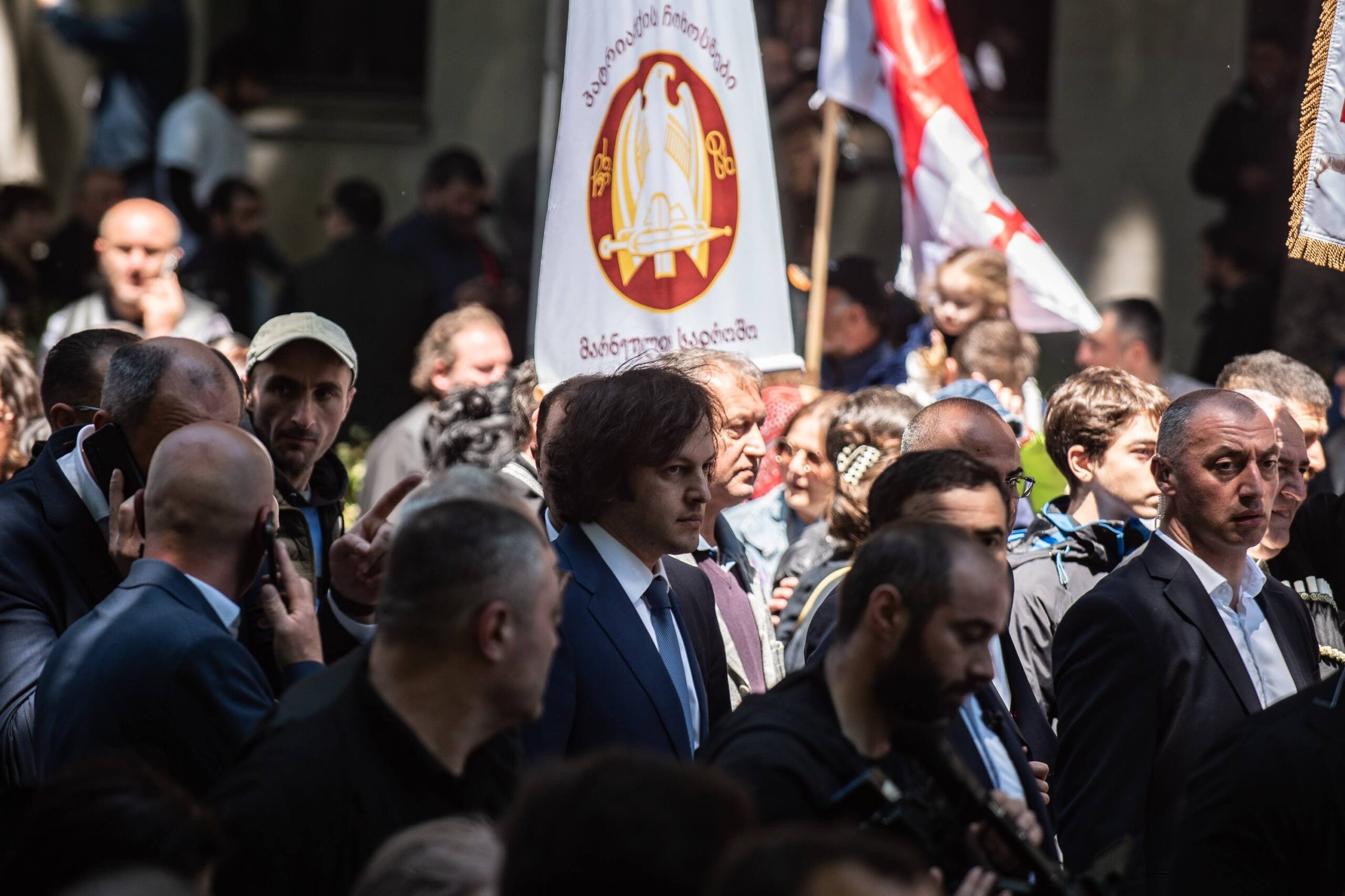Georgian Dream proposes to recognise Orthodox Christianity as state religion

On Wednesday, the Patriarchate of the Georgian Orthodox Church confirmed that Georgia’s ruling party had proposed to designate Orthodox Christianity as the state religion, but suggested that the Church remained sceptical about the proposal.
Speaking to media, Church spokesperson Andria Jaghmaidze stated that members of the clergy had met with unnamed representatives of the ruling party on Monday to discuss the proposal.
Jaghmaidze praised the government for its commitment to upholding ‘national values and traditions’ as well as a ‘policy of peace’, and emphasised that the proposal originated from the government’s ‘desire to strengthen the Church’s role and status further’. However, he suggested that the idea required further deliberation. Jaghmaidze also mentioned that Monday’s meeting was ‘spontaneous’, and that a broader meeting was scheduled for 29 August.
Speculation regarding this possibility arose from Georgian Dream’s campaign promises to ban ‘LGBT propaganda’, ‘peacefully’ retake control over South Ossetia and Abkhazia, outlaw key opposition rivals, and, as their fourth major promise, to ‘protect’ Georgia’s ‘national values’ without specifying what that entailed. The ruling party has insisted that these measures would only be possible if they secure a 133-member constitutional majority in the 150-seat legislature following the October parliamentary elections.
Earlier reactions from individual clergy members appeared to be more candid, suggesting the Church was not impressed by the proposal.
On 27 August, the Patriarchate’s high official Giorgi Zviadadze and spokesperson Longinoz Suarishvili confirmed that Shio Mujiri, the incumbent of the ageing Patriarch Ilia II since 2017, attended the Monday meeting.
Zviadadze, along with Nikoloz Pachuashvili, the Bishop of Akhalkalaki and Kumurdo and a member of the Church’s ruling body, the Holy Synod, attested that the Church was not in favour of the idea, as it would lead to a diminished independence from the state.
‘This is a very respectful, calm, and thorough discussion about the legal model [of the relationship] between the Church and the state,’ Zviadadze told TV channel Formula on 27 August.
‘There is no ground yet to change the legal model that exists today between the state and the church’, Zviadadze added.
Pachuashvili similarly highlighted the Church’s happiness with the existing arrangement between them and the state.
‘Recognising Orthodox Christianity as a state religion […] is not a benevolent proposal… it poses significant threats […] The Georgian Orthodox Church enjoys the highest status today and one can only worsen it’, Pachuashvili told Formula.
Zenon Iarajuli, the Archbishop of Dmanisi and Agarak-Tashir, was the second Synod member, following Pachuashvili, to speak on the matter.
‘If this proposal is deliberate, it can only be conceived as a malicious and base intent aimed at the institutional destruction of the Church and a deviation from democratic governance’, Iarajuli wrote on his Facebook page.
Calls to designate Orthodox Christianity as the ‘state religion’ have been a recurring theme since Georgia regained independence from the Soviet Union, particularly during election campaigns or among fringe conservative groups.
The Georgian Orthodox Church currently enjoys a special status guaranteed by a constitutional agreement between the Church and the state. Rights groups argue that this agreement, established in 2002, is discriminatory.
Despite several individual comments and confirmation from spokesperson Jaghmaidze, the Patriarchate has so far not issued an official written statement regarding the proposal from Georgian Dream, despite that being their usual form of communication.
This is Georgian Dream’s first major public disagreement with the Church in almost five years, following the ruling party’s failed attempt in 2018 to persuade the Patriarchate not to oppose their initiative to legalise cannabis production in Georgia. Georgian Dream eventually retracted the controversial draft law.
The Church has otherwise been viewed as a key ally of the government, particularly in Georgian Dream’s recent conservative shift and their commitment to limit advocacy for equal rights for queer people, legislation the Church explicitly called for last year.









